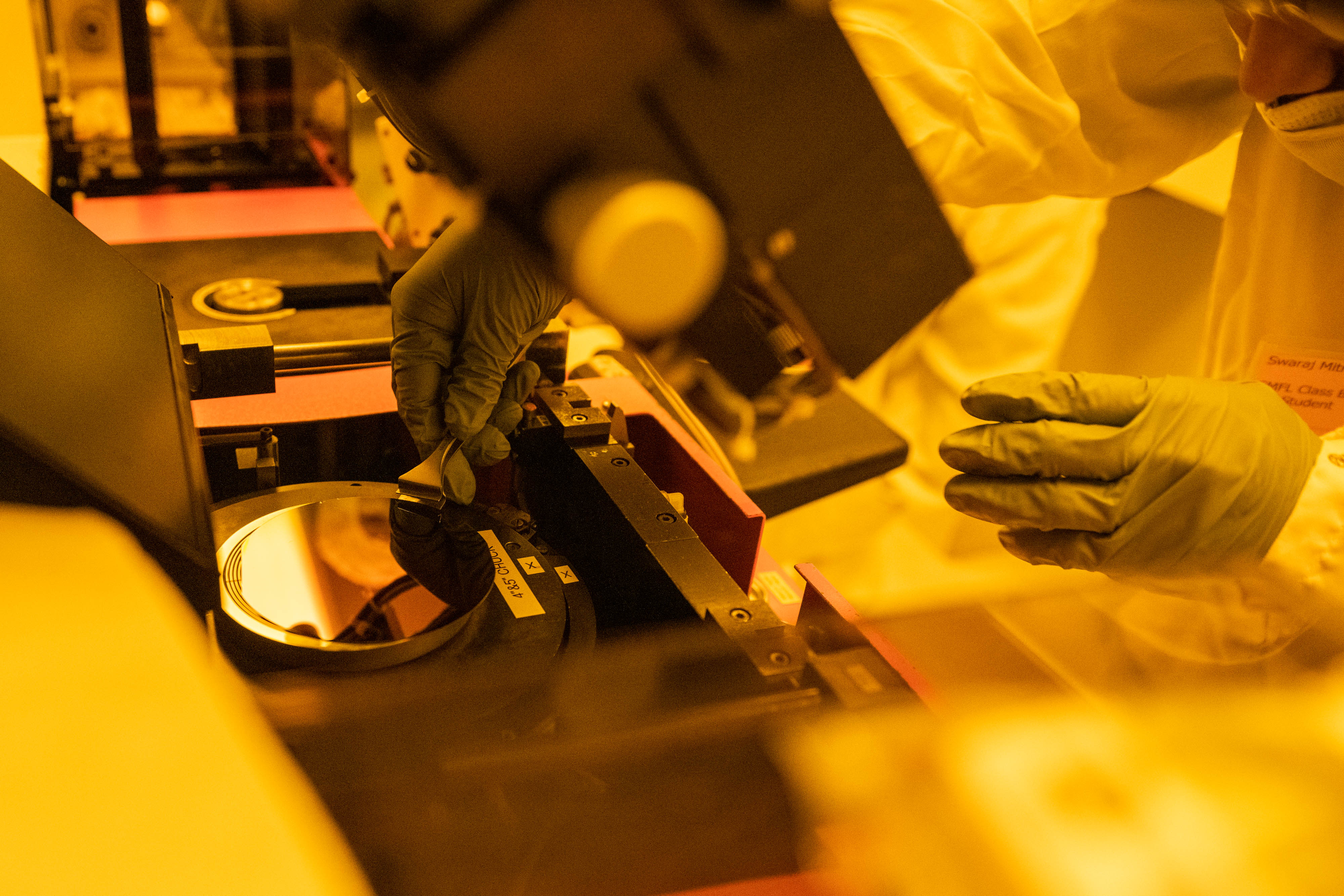RIT secures federal funding to advance microelectronic engineering workforce programs
Inaugural NSTC grant will prepare a diverse group of students for careers in the semiconductor field
RIT Photography
RIT is collaborating on several national workforce initiatives to address workforce shortages in the microelectronics sector through programs such as the National Semiconductor Technology Center’s Workforce Partner Alliance.
Rochester Institute of Technology received funding from the National Semiconductor Technology Center’s Workforce Partner Alliance for BRIDGE—the Broadening Research and Inter-Disciplinary Graduate Education for Microelectronics program. The award of nearly $1.5 million will be used to train 555 students over the next two years at the bachelor’s and master’s degree levels and through a new online certificate program across microelectronics-related educational tracks.
Program emphasis on education, industry collaboration, and student support will address workforce shortages in the microelectronics sector.
“I want to thank Senator Schumer and the Biden-Harris Administration for providing this opportunity that RIT will use to address workforce shortages in the microelectronics industry here in the U.S.” said RIT President David Munson. “Technology is driving unprecedented changes in the way we work. RIT is committed to fostering diversity and removing educational barriers for a new wave of highly skilled workers, who will need to be analytical problem solvers with an ability to adapt to evolving career fields.”
This inaugural round of funding from the NSTC to continue to build U.S. capacity in semiconductor design, manufacturing, and production was announced by U.S. Senate Majority Leader Charles E. Schumer.
“I am proud to have pushed for, and secured, this nearly $1.5 million federal investment for RIT from my CHIPS & Science Law that will help students in New York and across America get the hands-on training they need to enter careers in the booming chip industry,” said Schumer. “RIT’s program will provide training to hundreds of college students so that they can succeed in the thousands upon thousands of new jobs being created in New York in the semiconductor industry. This will prepare our students for good-paying jobs at companies like Micron, GlobalFoundries, Corning, Edwards Vacuum, and more as we see the chip industry expand in upstate N.Y.”
Investments by the Biden-Harris Administration, the Department of Commerce, and other organizations are helping to build industry, government, and academic partnerships across the country that are aimed at keeping the U.S. as a leader in the manufacture of semiconductors—and the leaders who develop them.
For example, earlier in the summer, RIT received a substantial grant from the National Science Foundation to establish Beginnings: Empowering Minds through Experiential Learning, Research, and Career Growth Opportunities in Emerging Microelectronics (EMERGE-MICRO), with a similar focus on preparing a pipeline of students for STEM careers. Key partners are Monroe Community College and Finger Lakes Community College, both of which have strong programming in engineering, science, and physics. Corporate partners include Micron Corp. and GlobalFoundries, international manufacturers of computer chips.
“Micron is committed to expanding access to careers in the semiconductor industry, and partners like RIT play an important role in ensuring we have trained, highly skilled professionals to support our memory manufacturing plans. This funding, which will support online certificate programs, ensures that we have pathways that allow individuals from all backgrounds opportunities to enter the industry. Micron is eager to collaborate with RIT to provide holistic experiential learning opportunities for the future generation of semiconductor industry leaders,” said April Arnzen, Micron executive vice president and chief people officer.



